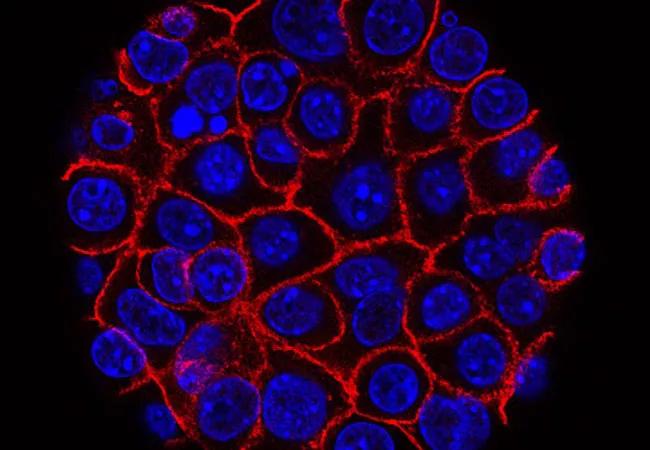Know Your Tumor initiative matches treatments with patients

Next-generation sequencing (NGS) offers oncologists the ability to identify actionable targets and select appropriate therapies for some patients. Most patients with metastatic pancreatic ductal adenocarcinoma don’t respond to standard-of-care therapies, so researchers turned to molecular profiling in an effort to optimize therapy by grouping these patients into therapeutically actionable subgroups. Recently published results from this initiative, called Know Your Tumor, demonstrate the feasibility and utility of a comprehensive precision medicine program to both discover actionable findings and improve progression-free survival (PFS) in patients who receive targeted therapy.
Advertisement
Cleveland Clinic is a non-profit academic medical center. Advertising on our site helps support our mission. We do not endorse non-Cleveland Clinic products or services. Policy
“One of the hallmarks of this program is that it was not limited to academic medical centers,” says Davendra Sohal, MD, MPH, Director of Cleveland Clinic Cancer Center’s Clinical Genomics Program. “This study tested the real-world relevance of this approach, to make it accessible to as many patients as possible.”
The Pancreatic Cancer Action Network’s Know Your Tumor initiative, in partnership with Perthera, included tumor samples from 640 patients from 287 academic and community practices in 44 states. A cloud-based tumor board reviewed the results of each patient’s NGS and immunohistochemistry testing and found actionable targets in 50 percent (with 27 percent highly actionable) of patients tested. Commonly altered pathways discovered by testing included AKT/mTOR (19 percent), DNA repair (15 percent) and cell cycle (11 percent). Patients who received targeted therapy based on these results (n = 17) experienced significantly longer PFS, 4.1 months, than patients receiving unmatched therapy (n = 18, PFS 1.9 months; HR, 0.47; 95% CI 0.24-0.94; Padj = 0.03).
“These results, albeit not in a randomized trial, add to the growing evidence that treating patients with biomarker-matched agents increases survival when compared with historical data on standard therapies,” says Dr. Sohal. “We also showed that it’s possible to increase clinical trial enrollment in a population of patients that historically has enrolled at very low rates.” Features of the program designed to engage patients in their results more actively contributed to a 21 percent enrollment rate in applicable clinical trials, versus a 5 percent average across all patients with metastatic pancreatic cancer.
Advertisement
Not all patients in the program chose the targeted treatments suggested in their individual reports. Overall, 63 percent of patients were still placed on standard-of-care regimens. “This could be due to issues with insurance coverage, access to clinical trial sites or reluctance from physicians to try regimens that, while not without evidence of benefit, are not as well-tested as standard therapies,” says Dr. Sohal.
Efforts to inform patients and physicians about the potential benefits of molecular profiling continue, and the initiative continues to expand. “We know that pancreatic cancer should be treated based on an individual patient’s tumor biology,” says Dr. Sohal. “This initiative aims to make that possible.”
Advertisement
Advertisement

The shifting role of cell therapy and steroids in the relapsed/refractory setting

Radiation therapy helped shrink hand nodules and improve functionality

Standard of care is linked to better outcomes, but disease recurrence and other risk factors often drive alternative approaches

Phase 1 study demonstrates immune response in three quarters of patients with triple-negative breast cancer

Multidisciplinary teams bring pathological and clinical expertise

Genetic variants exist irrespective of family history or other contributing factors

Study shows significantly reduced risk of mortality and disease complications in patients receiving GLP-1 agonists

Structured interventions enhance sleep, safety and caregiver resiliency in high-acuity units